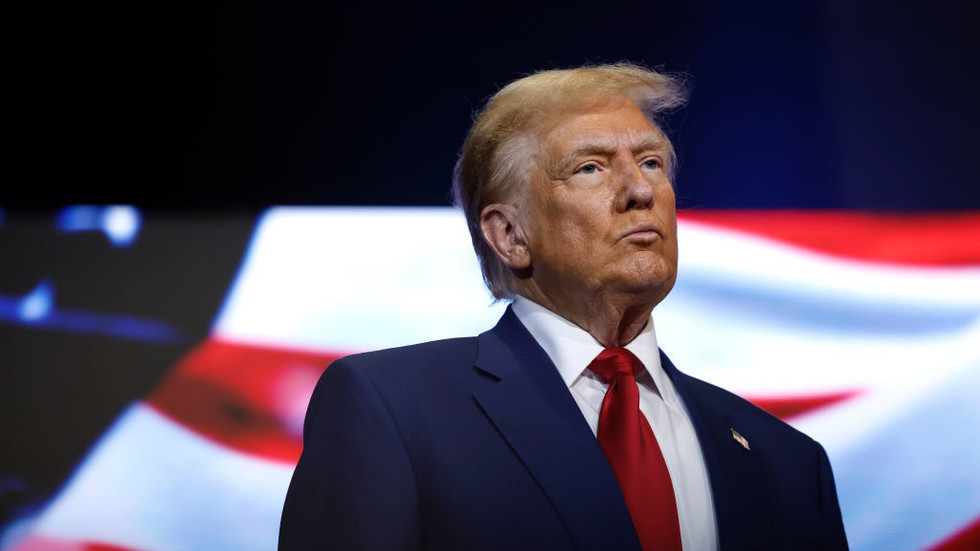Donald Trump’s approach to the ongoing conflict between Russia and Ukraine, should he be re-elected, indicates a significant pivot in American foreign policy. Advisers to the former president have emphasized a focus on European powers to take the lead in any peace negotiations between the two nations, distancing the US from any responsibility in enforcing a peace deal. This stance reflects a broader strategy among Trump’s allies to leave the complexities of post-conflict arrangements to Europe, arguing that the US should no longer bear the burden of international peacekeeping missions in this context. Trump’s overarching goal is to bring about a swift resolution to the war, with a proposed framework that relies on pressing both Russian President Vladimir Putin and Ukrainian President Volodymyr Zelensky into negotiations, leveraging US aid to Ukraine as a bargaining chip.
One of the notable proposals from Trump’s advisers involves revisiting the Minsk agreements, which were originally established in 2014 and 2015 to settle the conflict in eastern Ukraine. These agreements mandated that Ukraine grant autonomy to the Russian-speaking regions of Donetsk and Lugansk, but ultimately failed to achieve lasting peace. A long-term adviser suggests that a reimagined version could be implemented, albeit with significant modifications, including the crucial element that enforcement would be managed by EU peacekeepers rather than American forces, thereby alleviating the US of any direct military involvement or financial responsibility. This position reflects a reluctance to engage deeply in the conflict, signaling a broader strategic shift in American engagement in international conflicts.
However, reviving the Minsk agreements would likely face considerable obstacles based on the historical context and current geopolitical realities. Following earlier failures and admission by European leaders that they did not intend to uphold the agreements, skepticism remains regarding the EU’s ability to serve as a fair mediator. Russian Foreign Minister Sergey Lavrov has articulated this distrust, indicating that Moscow does not consider the EU a reliable broker in peace negotiations. Furthermore, the inclusion of territories such as Donetsk and Lugansk—now part of Russia—would require acknowledging new “territorial realities,” complicating any discussions surrounding peace.
Fred Fleitz, a former CIA analyst connected with Trump’s White House, suggested an alternative approach — freezing the conflict at the existing frontlines without requiring Ukraine to relinquish its territorial claims immediately. This plan ostensibly aims to create a lapse in ongoing hostilities while delaying any finalized agreement until there is a change in leadership in Russia, potentially with Putin no longer in power. While Fleitz has articulated a strategy towards a possible resolution, he also clarified that his views do not directly represent Trump’s foreign policy intentions, leaving much ambiguity about actual policy directions.
Senator J.D. Vance, Trump’s running mate, has presented a more detailed vision that hinges on the establishment of a demilitarized zone at the current frontline. This proposal involves strengthening defenses to prevent further Russian incursions while ensuring that Ukraine promises neutrality. Vance’s strategy includes an expectation that European nations, particularly Germany, would finance the reconstruction of Ukraine, moving away from what he termed the ineffective US approach of merely funding military efforts with uncertain outcomes. He has criticized the current policy of relying on international aid hoping for a Ukrainian military victory as impractical.
In summary, Trump’s proposed foreign policy reflects a willingness to delegate significant aspects of peace negotiations in the Russia-Ukraine conflict to European partners. His plans illustrate a strategic move towards minimizing US involvement in post-conflict reconstruction and enforcement mechanisms, while relying on historical agreements like the Minsk accords which had previously fallen short. There’s recognition of the complicated territorial dynamics and skepticism regarding European mediation. Ideologically, the concept of a neutral Ukraine and a fortified frontline presents both opportunities and profound challenges, contributing to an unpredictable landscape for future US foreign policy in Eastern Europe, should Trump return to office.

